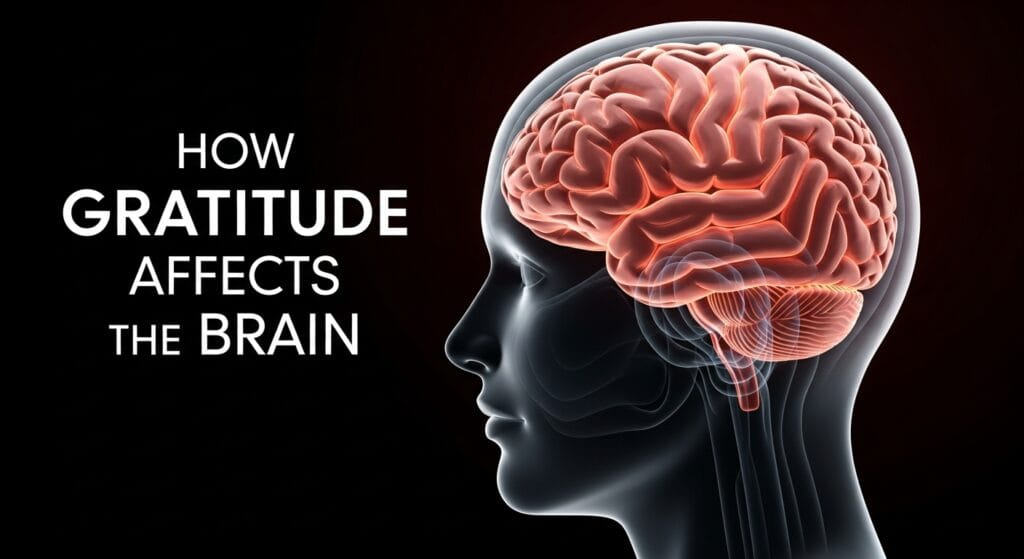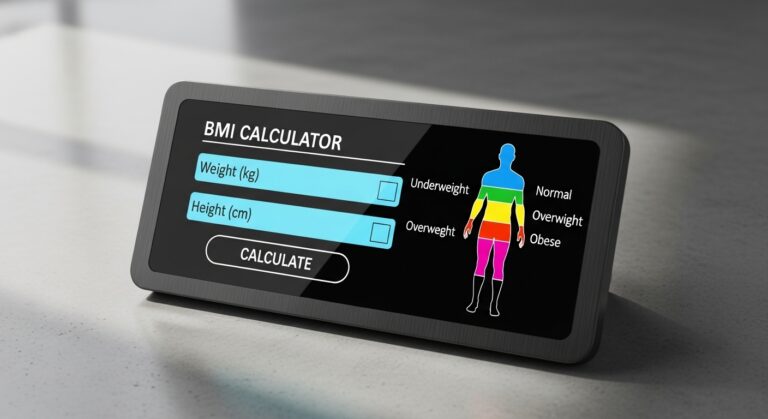How Gratitude Affects the Brain: The Science Behind a Thankful Mind
Gratitude is more than just saying thank you. It is a powerful emotional practice that has profound effects on the brain. Research shows that saying thank you often can change the brain. This change can help improve both mental and physical health.
Understanding how gratitude affects the brain is important. It shows us why this simple practice can improve our well-being over time.
What is Gratitude?
Gratitude is the recognition and appreciation of positive aspects in life. It involves acknowledging the kindness of others, favorable circumstances, or personal achievements. People express gratitude in many ways, including:
- Saying thank you verbally
- Writing gratitude journals
- Practicing mindful appreciation
- Acts of kindness or reciprocity
Gratitude is both an emotion and a skill that can be cultivated over time.

The Neuroscience of Gratitude
Gratitude activates several brain regions associated with reward, social bonding, and emotional regulation.
Key Brain Areas Involved
| Brain Region | Function Related to Gratitude |
|---|---|
| Prefrontal Cortex | Part of the reward circuitry, releases dopamine |
| Anterior Cingulate Cortex | Emotional regulation, empathy |
| Hypothalamus | Regulates hormones, stress response |
| Ventral Tegmental Area | Part of the reward circuitry releases dopamine |
When you feel or express gratitude, these areas work together to enhance feelings of pleasure and social connection.
Molecular and Chemical Changes in the Brain
Gratitude affects the brain’s chemistry by influencing neurotransmitters and hormones:
- Dopamine: Often referred to as the “feel-good” neurotransmitter, dopamine levels increase with gratitude, enhancing motivation and reward.
- Serotonin: Gratitude boosts serotonin levels, thereby improving mood and emotional stability.
- Cortisol: Gratitude reduces cortisol, the stress hormone, which helps lower anxiety and physical stress.
These chemical changes support brain plasticity, the brain’s ability to rewire and adapt over time.
Psychological and Physical Benefits Linked to Brain Changes
The brain changes caused by gratitude contribute to various benefits:
- Improved mood and reduced symptoms of depression
- Greater resilience to stress and adversity
- Enhanced sleep quality
- Strengthened immune system functioning
- Increased feelings of social connection and empathy
Gratitude helps create a positive feedback loop in the brain, encouraging more thankful thoughts and healthier emotional states.
Practical Ways to Cultivate Gratitude
Incorporating gratitude into daily life can help harness these brain benefits. Some effective practices include:
- Gratitude Journaling: Write down three things you are grateful for each day.
- Gratitude Meditation: Focus your mind on appreciating positive experiences.
- Expressing Thanks: Verbally thank friends, family, or coworkers regularly.
- Mindful Reflection: Take moments to notice and appreciate small positive moments.
Consistency is key for these practices to change brain function over time.
Scientific Studies Supporting Gratitude’s Brain Effects
Research has provided strong evidence for gratitude’s influence on the brain:
- A 2015 study using functional MRI showed increased activity in the medial prefrontal cortex during gratitude exercises.
- Research published in Psychosomatic Medicine linked gratitude to reduced inflammatory markers and improved heart health.
- Studies in positive psychology found that gratitude interventions can significantly lower depression and anxiety symptoms.
These studies show that gratitude is more than just a nice feeling. It is a real brain activity that can affect health.
Let’s Conclude How Gratitude Affects the Brain
Gratitude shapes the brain in meaningful ways, from altering chemical messengers to rewiring neural pathways. These changes foster improved mental health, stress resilience, and social bonds. By regularly practicing gratitude, anyone can tap into the brain’s natural ability to grow and heal.
Incorporate gratitude into your daily routine to experience the powerful benefits of a thankful mind.
FAQs About How Gratitude Affects the Brain
What is the purpose of gratitude change?
The purpose of gratitude change is to shift your mindset toward recognizing and appreciating the positive aspects of life. This change helps improve emotional health. It strengthens relationships and builds mental strength. It does this by encouraging a more positive and grateful outlook.
What is the effect of regular gratitude practice?
Regular gratitude practice enhances brain function by increasing activity in areas related to reward and emotional regulation. It leads to improved mood, reduced stress and anxiety, better sleep, and stronger social connections. Over time, it can rewire the brain to maintain a more optimistic mindset.
What are the 4 A’s of gratitude?
The 4 A’s of gratitude are:
Acknowledging the good things in your life
Appreciating people and circumstances that bring positivity
Allowing yourself to feel thankful sincerely
Acting by expressing gratitude through words or deeds
These steps help deepen the practice of gratitude
How does expressing gratitude help you?
Expressing gratitude helps boost your mental and emotional health. It reduces negative emotions like envy and resentment, strengthens relationships, increases happiness, and lowers stress. It also encourages a positive cycle of appreciation that improves overall well-being.
How Gratitude Affects the Brain?
Gratitude helps the brain by activating areas related to emotions, rewards, and social connections. These areas include the prefrontal cortex and anterior cingulate cortex. Practicing gratitude boosts the release of “feel-good” chemicals like dopamine and serotonin. These help improve mood and lower stress hormones like cortisol. Over time, regular gratitude practice can rewire neural pathways, enhancing emotional resilience, reducing anxiety, and promoting overall mental well-being.







